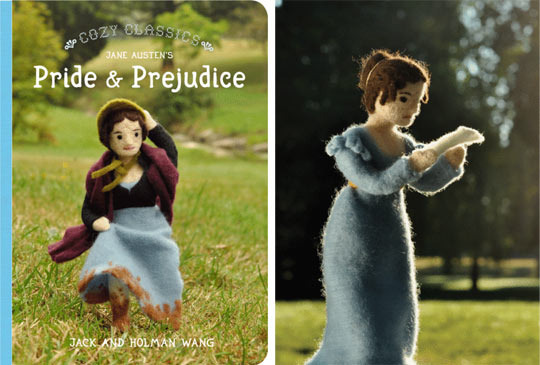I mentioned in my last that Charlotte Brontë was not an Austen fan. I had a vague recollection of some remarks she'd famously made on the subject, and went looking for them. They appear in letters she wrote to the critic GH Lewes, and to her publisher's reader WS Williams, both of whom admired Austen and encouraged Brontë to give her a try.
“Why do you like Jane Austen so very much?" she complained to Lewes in a letter of 12 January 1848. On his advice she had read Pride and Prejudice, but all she found there was “a carefully fenced, highly cultivated garden, with neat borders and delicate flowers; but no glance of a bright vivid physiognomy, no open country, no fresh air, no blue hill, no bonny beck... [George Sand] is sagacious and profound; Miss Austen is only shrewd and observant."
To Williams she wrote, in 1850, that she had just read Emma: “read it with interest and with just the right degree of admiration which Miss Austen herself would have thought sensible and suitable—anything like warmth or enthusiasm; anything energetic, poignant, heartfelt, is utterly out of place in commending these works: all such demonstration the authoress would have met with a well-bred sneer, would have calmly scorned as outre and extravagant. She does her business of delineating the surface of the lives of genteel English people curiously well; there is a Chinese fidelity, a miniature delicacy in the painting: she ruffles her reader by nothing vehement, disturbs him by nothing profound: the Passions are perfectly unknown to her; she rejects even a speaking acquaintance with that stormy Sisterhood; even to the Feelings she vouchsafes no more than an occasional graceful but distant recognition; too frequent converse with them would ruffle the smooth elegance of her progress."
It's a difference of period as well as temperement, but it's also, I would venture, a misreading. Brontë's own preference for sturm und drang (the aspect of her novels I find least appealing) leads her to read Austen's calm as a preoccupation with surfaces. In fact surfaces are precisely what Austen is concerned to trouble and displace. Customs and courtesies cover a seething multitude of relational subtleties and human failings. Masks and impressions fall before knowledge and revelation. Austen's sharp penetration of civil surfaces makes for inspired comedy and an enduring social realism for which Brontë never strove.

